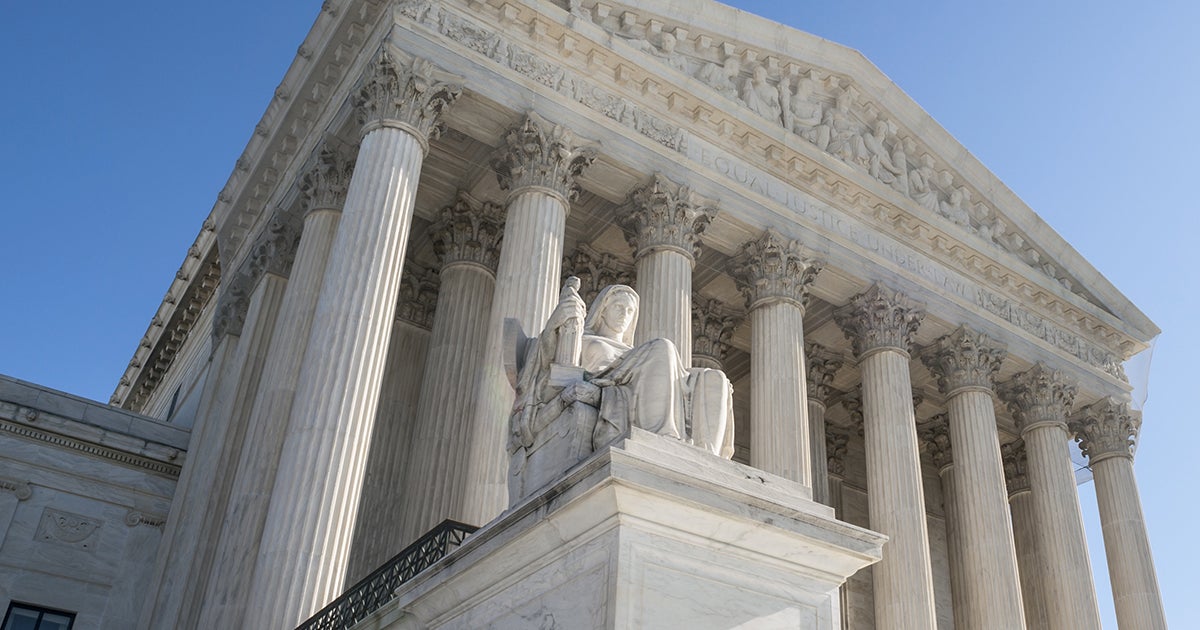
by Mia Gradick – 7 minutes
A recent U.S. Supreme Court decision limiting the power of the administrative state is good for religious freedom.
Just a few weeks ago, the Supreme Court ruled favorably in Loper Bright Enterprises v. Raimondo, holding that federal courts, not federal agencies, have the authority to interpret the meaning of ambiguous federal laws.
The Court overturned the 1984 case Chevron v. National Res. Def. Council, which required the courts to defer to federal agencies in interpreting ambiguous federal laws. This is well-known in administrative law as “Chevron deference.”
What implications will this have for religious liberty and people of faith?
First Liberty represents many people harmed by administrative state overreach. This ruling is favorable and will help religious Americans who have been kept from living out their faith by the heavy hand of government.
Senior Director of External Affaris, Kassie Dulin, explains more below:
The Loper case challenged federal law applying to the fishing industry. The Supreme Court clarified that even if a law’s writing or intent is unclear, the courts are not allowed to “defer to an agency interpretation.”
In other words, the high court held that federal agencies do not have the authority to interpret the law if its language is unclear. Rather, the decision determines that the courts, not the agencies, have the authority to interpret ambiguous laws.
The Supreme Court’s opinion—delivered by Chief Justice John Roberts—held that courts must now “exercise their independent judgment in deciding whether an agency has acted within its statutory authority” rather than deferring to the agencies’ judgment.
In a concurrence, Justice Clarence Thomas said that the Chevron doctrine was “a fundamental disruption of our separation of powers,” as it improperly stripped courts “of judicial power by simultaneously increasing the power of executive agencies.”
“Regardless of what a statute says the type of deference required by Chevron violates the Constitution,” concluded Justice Thomas.
Legal experts around the country—along with many religious and political leaders—believe that this change in the law will be positive for people of faith whose religious liberty rights have been trampled by overzealous bureaucrats.
“Government bureaucracy touches far too many areas of life and is far too bloated and onerous to navigate,” explains Trey Dimsdale, executive director at First Liberty’s Center for Religion, Culture & Democracy. “At least with Chevron gone…American citizens have some recourse against administrative overreach.”
In a statement, Sen. Chuck Grassley of Iowa praised the ruling, saying it “restores appropriate balance to our nation’s system of checks and balances.”
“The Supreme Court has made clear that we are a nation governed by the rule of law,” Grassley added, “not by bureaucratic regulators.”
Philip Hamburger—a professor at Columbia Law School—told the Catholic News Agency the decision in Loper Bright was “a notable day for freedom in the United States.” He added:
“Administrative bureaucrats, especially administrative experts, are not representative of the United States and on average are intolerant of religion, especially relatively orthodox opinions…Administrative power, in other words, is slanted against traditional Catholics, Protestants, Jews, and others who adhere to their inherited faiths. We therefore should celebrate decisions such as this one that limits administrative power to what is authorized by Congress.”
Similarly, Catholic bishops explained in an op-ed for OSV News that federal agencies are often “working methodically to promote gender ideology at the expense of the rights of people of faith.”
“This regulatory regime harms the common good and undermines the church’s good works in service of the human person,” the bishops added. They also noted that the ideological worldview behind the agencies’ rule-making “threatens the viability of Catholic institutions, such as hospitals, migration and refugee services, and adoption and foster care agencies.”
The Loper Bright ruling doesn’t solve all the problems. There’s plenty of work ahead in order to stop the tyranny of petty bureaucrats. But religious Americans should be optimistic. The Supreme Court rightfully protected the Constitution’s founding principle of separation of powers and returned the right of statutory interpretation back to the courts, which is going to help many people of faith.